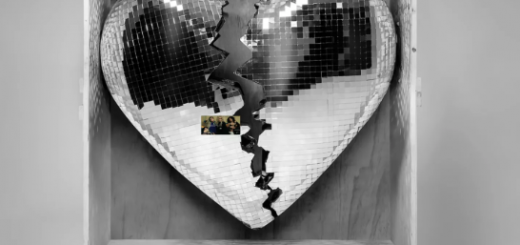No Rest for the Wicked by Lykke Li Lyrics Meaning – The Intricate Dance of Love and Loss
Lyrics
So only one life can’t be enough
Can you give me just another
For that one who got away?
Lonely, I’m so alone now
There’ll be no rest for the wicked
There’s no song for the choir
There’s no hope for the weary
You let them win without a fight
If one heart can mend another
Only then can we begin
So won’t you hold on a little longer?
Don’t let them get away
Lonely, I’m so alone now
There’ll be no rest for the wicked
There’s no song for the choir
There’s no hope for the weary
You let them win without a fight
I let my good one down
I let my true love die
I had his heart but I broke it every time
Lonely, I’m so alone now
There’ll be no rest for the wicked
There’s no song for the choir
There’s no hope for the weary
You let them win without a fight
I let my good one down
I let my true love die
I had his heart but I broke it every time
In the tapestry of modern pop music, few songs weave as poignant a narrative on the human condition as Lykke Li’s ‘No Rest for the Wicked’. Through the haunting echoes of her ethereal voice, the Swedish songstress crafts a gripping confession of love’s casualties and the inexorable guilt that follows.
While maintaining a melody that’s as entrancing as it is somber, ‘No Rest for the Wicked’ serves as a siren call, illuminating the darker corners of our emotional landscapes; where love is lost not to fate, but to our own fallible hands. The lyrics are a raw and open-heart surgery of the soul, and here we dissect the layers beneath.
A Lament for the Lost: Unpacking Heartache
Lykke Li’s verses carry the weight of an unshakable regret, an acknowledgment that in the realm of emotions, wounds can be self-inflicted. ‘My one heart hurt another,’ she starts, setting the stage for a tale of love mishandled and a plea for redemption. The repetition of ‘one’ underscores a sense of singularity – one life, one chance, one love, and the stark absence of second opportunities.
By wondering if another life could repair the damage, the artist ventures into the territory of existential bargaining. It’s an act of desperation, a sign that the stakes in matters of the heart are impossibly high. The listener is drawn into the raw intimacy of her plea, ‘Can you give me just another?’ which echoes the notion that love, once tarnished, leaves a hunger that’s never quite satiated.
Cries in the Void: The Search for Absolution
The repetition of ‘lonely, I’m so alone now’ serves as a haunting refrain throughout the song, emphasizing the isolating nature of guilt. In a universe where one’s actions can irrevocably alter the course of another’s life, Lykke Li mirrors the solitary confinement of remorse. The melody becomes a soundtrack to introspection, where the listener confronts their inner ghost town of past relationships and the echoes of what could have been.
This solitude births an eerie solidarity among the heartbroken. It whispers a universal truth, that pain is a solitary cell where many serve time. As Lykke Li shares her solitary introspection, its relatability turns a personal confession into a collective anthem for the repentant, the mistaken, and the ruefully wise.
The Chorus of Despair: Dissecting the Song’s Elegiac Centerpiece
‘There’ll be no rest for the wicked, there’s no song for the choir,’ the chorus begins, presenting an anthem for the damned, a dirge for the dearly departed innocence of a lover scorned. By invoking the imagery of a choir without song, Lykke Li introspects on nihilism—a sense of futility that pervades when love dies and leaves behind a wake.
In the poetic economy of ‘no hope for the weary,’ a narrative unfolds about the futility of resistance against the repercussions of wrongdoing. By letting ‘them win without a fight,’ there’s a resignation to the haunting consequences; perhaps the most brutal judgment is the one we pass upon ourselves, etched into the quietude of the night when the mind refuses rest.
The Ballad’s Cryptic Confessions: Unlocking the Hidden Meaning
If redemption is a tapestry, then guilt is its primary thread, and Lykke Li’s lyrics are a complex interweaving. When considering ‘I let my true love die,’ the language becomes less about the physical and more about the metaphysical. The true death here is that of trust, of possibilities, of the future that love promises but was martyred by its guardian.
Lykke Li’s evocative imagery suggests a failure not just in relation but also in the reconciliation of the self. The ‘good one’ might stand in as a representation of the singer’s better self or innocence that was also abandoned in the fray. It’s as if in wounding another; she has fractured an essential part of her humanity, the component capable of nurturing love unmarred by darker impulses.
A Lexicon of Lament: Unforgettable Lines That Pierce the Heart
‘I had his heart but I broke it every time,’ is a line that lingers long after the song’s final note. This lyric doesn’t just resonate; it reverberates through the soul of anyone who’s ever recognized their hand in the undoing of something beautiful. It’s a moment of lyrical lucidity, capturing the essence of regret in a mere dozen words.
With her honesty, Lykke Li crafts a sorrowful ode on the unintended casualties of love. It’s an apex of recognition, where the listener unearths uncomfortable truths within the melody’s melancholic embrace. These words become hallowed in their ability to mournfully map the traitorous territory of the heart’s misgivings.








